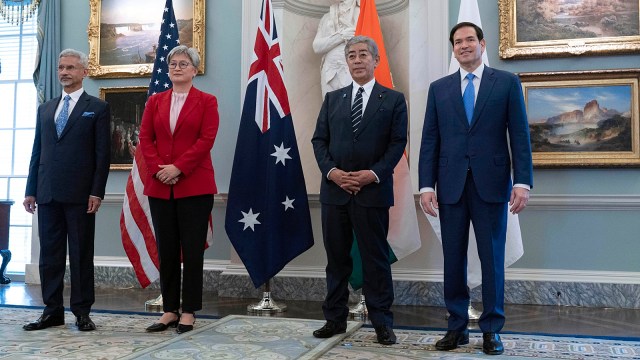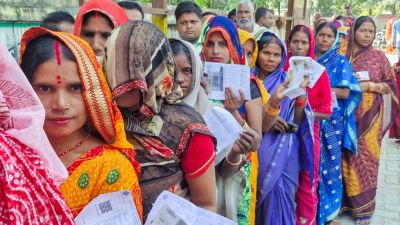Ahead of the Quad leaders’ summit in New Delhi this year, a senior Japanese diplomat on Thursday indicated that more “like-minded” nations may be included in the Quad grouping in future, calling it an ‘evolving framework”.
This also comes barely a week after the Quad Foreign Ministers meeting in Washington DC, which was attended by External Affairs Minister S Jaishankar.

During an event in New Delhi, Noriaki Abe, Minister for Political Affairs, Embassy of Japan in India, responding to a question whether South Korea or the Philippines can be added as new members to Quad, said, “I don’t exclude the possibility of adding other like-minded countries to this framework.” An interactive session was organised by the Embassy in collaboration with Centre for Integrated and Holistic Studies, a New Delhi-based foreign policy think tank.
Story continues below this ad
Terming Quad “an evolving framework”, Abe said they were looking to expand cooperation with regional partners. “But this possibility has not been discussed in the Quad context,” he said.
For the Quad Leaders’ summit, US President Donald Trump, Australian PM Anthony Albanese and Japanese PM Shigeru Ishiba are slated to travel to the national capital later this year, even as specific dates are still being worked out.
Abe also spoke on the disagreements related to tariff that the other Quad partners, including India and Japan, may be having with the US at the moment, and how they plan to overcome those divergences and work on cooperation towards “a free and open Indo-Pacific”.
“We have many divergences. Like it or not, we need the US’s engagement to promote peace, stability and prosperity in the Indo-Pacific region. We should not create any power vacuum in this region,” he said.
Story continues below this ad
“We need US’s engagement and we need to multiply and multi-facet our cooperation with like-minded partners, including the US, of course. But we may expand our cooperation with other regional partners,” Abe said.
Even as Quad partners have often expressed concern about China’s unilateral actions in the South China Sea and East China Sea, Abe insisted that “the framework is not intended to do something with any specific country”.
He also spoke about the Quad Foreign Ministers condemning the Pahalgam terror attack, even as there was no mention of Pakistan in the joint statement. “In order to develop the international partnership against terrorism, particularly cross-border terrorism, Japan is second to no country, to support concerted efforts that should be taken by all the relevant parties,” he said.
Abe said that Japan was one of the few countries that first contacted, consulted with the Indian government at the level of National Security Advisor and Foreign Minister (after the terror attack). “India also sent their all-party delegation to Japan as a first leg in this Asia-Pacific region,” he said, adding, “They had a substantive session at the higher leadership in Japan. That delegation provided us with a very timely opportunity to deepen our understanding about the nature of this heinous crime of terrorism and India’s position.”









